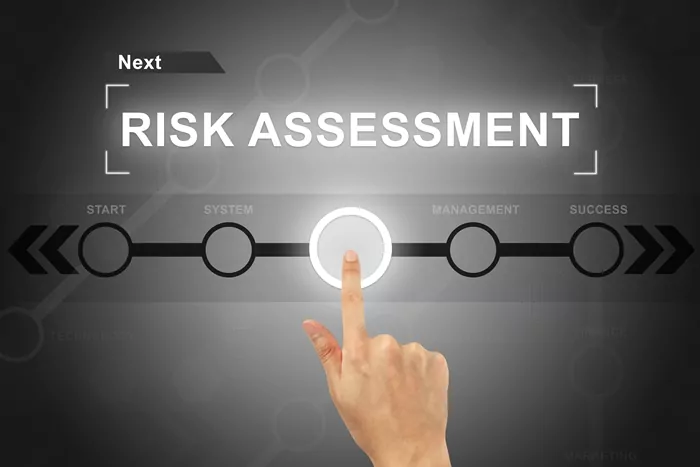Governance Risk and Compliance Certification: Your Pathway to Regulatory Excellence
Governance, Risk, and Compliance (GRC) represents a framework that integrates strategic management to ensure an organization operates efficiently, effectively, and in accordance with laws and regulations.
Governance involves establishing strategic direction, overseeing management, and ensuring objectives are met while managing risks appropriately. It sets the tone for organizational behaviour and accountability from top-level management down to operational staff.
Risk management within GRC identifies, assesses, and prioritizes risks followed by coordinated efforts to minimize, monitor, and control the probability or impact of unfortunate events. This proactive approach helps organizations navigate uncertainties while capitalizing on opportunities.
Compliance focuses on adhering to external laws, regulations, and internal policies, ensuring operations are conducted within legal and ethical boundaries. Compliance mitigates legal risks and fosters trust among stakeholders.
In today's regulatory environment, where laws and standards are increasingly stringent and complex, GRC is crucial. It enables organizations to navigate regulatory landscapes, mitigate risks, and sustain operational resilience. Effective GRC frameworks also enhance decision-making by providing timely, accurate information to stakeholders, fostering transparency and accountability.
The blog aims to delve into GRC certifications, exploring their relevance and benefits in enhancing career prospects and organizational capabilities. Certifications like Certified in Risk and Information Systems Control (CRISC), Certified Information Systems Auditor (CISA), and Certified Information Security Manager (CISM) validate expertise and commitment to GRC principles. They equip professionals with specialized knowledge to implement and manage robust GRC frameworks, contributing to organizational success and compliance assurance in an increasingly complex business environment.
Understanding Governance, Risk, and Compliance
Governance refers to the overarching framework and processes that define how an organization is directed, controlled, and operated. It involves setting strategic goals, ensuring resources are used effectively, and monitoring performance to achieve objectives. Effective governance establishes accountability mechanisms and ethical standards across all levels of the organization, promoting transparency and trust among stakeholders.
Risk Management is the systematic process of identifying, assessing, prioritizing, and managing risks that could affect an organization's ability to achieve its objectives. It involves understanding potential threats and opportunities, evaluating their likelihood and impact, and implementing strategies to mitigate or capitalize on them. Risk management enables organizations to anticipate challenges, minimize losses, and seize opportunities while maintaining operational resilience.
Compliance refers to the adherence to laws, regulations, standards, and internal policies relevant to an organization's operations. It ensures that the organization conducts its business within legal and ethical boundaries, avoiding legal penalties, financial losses, and reputational damage. Compliance efforts typically involve monitoring regulatory changes, implementing controls, and conducting audits to verify adherence.
Together, Governance, Risk Management, and Compliance (GRC) form an integrated approach to organizational management. They help organizations achieve strategic objectives while managing uncertainties and complying with legal and ethical standards. By aligning these elements, organizations enhance decision-making, strengthen internal controls, and build a resilient framework that supports sustainable growth and stakeholder confidence in a dynamic and regulated business environment.
Benefits of GRC Certification
Obtaining a GRC (Governance, Risk, and Compliance) certification offers several substantial benefits that enhance both career prospects and professional capabilities.
Enhanced Career Opportunities: GRC certifications such as Certified in Risk and Information Systems Control (CRISC), Certified Information Systems Auditor (CISA), and Certified Information Security Manager (CISM) are highly regarded in the industry. These certifications validate expertise in GRC principles, demonstrating to employers and clients a commitment to professional development and mastery of critical skills. They often serve as a prerequisite for roles in risk management, compliance auditing, information security, and governance leadership. Certification holders typically enjoy access to a broader range of career opportunities and may command higher salaries due to their specialized knowledge and recognized competencies.
Skill Enhancement: Pursuing a GRC certification involves rigorous study and preparation, deepening understanding of governance frameworks, risk assessment methodologies, compliance regulations, and best practices in managing organizational controls. This process not only consolidates existing knowledge but also introduces new perspectives and skills essential for addressing contemporary challenges in regulatory compliance, cybersecurity, and risk mitigation. Certified professionals are equipped with practical tools and strategies to proactively manage risks, ensure regulatory compliance, and enhance organizational resilience in the face of evolving threats.
Credibility and Trust: GRC certifications instil confidence in stakeholders by demonstrating adherence to industry standards and best practices. They signify a commitment to ethical conduct, transparency, and effective governance, bolstering credibility both internally among colleagues and externally with clients, regulators, and investors. Certified professionals are perceived as trusted advisors capable of navigating complex regulatory landscapes and implementing robust GRC frameworks that safeguard organizational interests while promoting sustainable growth and operational efficiency.
In summary, GRC certifications not only validate expertise but also open doors to career advancement, foster continuous learning, and strengthen professional credibility in critical areas of governance, risk management, and compliance. They serve as a mark of distinction in a competitive job market, offering tangible benefits for individuals seeking to excel in GRC-related roles and contribute effectively to organizational success and resilience.
Popular GRC Certifications
Popular GRC (Governance, Risk, and Compliance) certifications are highly sought-after credentials that validate professionals' expertise and competence in key areas of organizational governance, risk management, and compliance.
Certified in Risk and Information Systems Control (CRISC): Offered by ISACA, CRISC focuses on risk identification, assessment, evaluation, and response within the context of information systems. It is designed for IT professionals and risk management practitioners who specialize in managing IT risks and ensuring alignment between IT and business objectives.
Certified Information Systems Auditor (CISA): Also from ISACA, CISA is geared towards professionals involved in auditing, control, and assurance of information systems. It emphasizes auditing, control, monitoring, and assessing IT and business systems to safeguard information assets and ensure compliance with regulations.
Certified Regulatory Compliance Manager (CRCM): Offered by the American Bankers Association (ABA), CRCM focuses on regulatory compliance within financial institutions. It covers regulatory requirements, compliance management strategies, risk assessment, and implementation of compliance programs to ensure adherence to applicable laws and regulations.
Other Relevant Certifications: Beyond these popular certifications, there are other relevant credentials that professionals may pursue based on their specific industry or job roles. These include:
-
Certified Information Security Manager (CISM): Also from ISACA, CISM focuses on information security management, governance, incident management, and program development and management.
-
Certified Compliance and Ethics Professional (CCEP): Offered by the Society of Corporate Compliance and Ethics (SCCE), CCEP validates expertise in compliance program management, ethics, risk assessment, and regulatory compliance across various industries.
-
Project Management Professional (PMP): Although not solely focused on GRC, PMP certification from the Project Management Institute (PMI) is relevant for professionals involved in managing projects related to governance, risk, and compliance initiatives.
These certifications provide professionals with specialized knowledge, skills, and credibility necessary to excel in GRC-related roles. They enhance career opportunities, demonstrate commitment to best practices, and equip individuals with the expertise needed to navigate complex regulatory environments and organizational challenges effectively.
Steps to Achieve GRC Certification
Achieving a GRC (Governance, Risk, and Compliance) certification involves several key steps that ensure thorough preparation and readiness for the certification exam:
Research and Preparation: Begin by researching the various GRC certifications available, such as CRISC, CISA, CRCM, or others that align with your career goals and industry. Understand the eligibility requirements, exam structure, and topics covered to determine the most suitable certification for your expertise and career aspirations. Prepare a study plan outlining timelines, resources, and goals to guide your certification journey effectively.
Training and Study Resources: Enrol in accredited training courses or workshops offered by professional organizations like ISACA, ABA, or other recognized institutions. These courses provide comprehensive coverage of GRC principles, regulatory requirements, and exam-specific content. Utilize study materials such as textbooks, practice exams, and online resources to reinforce understanding and test your knowledge.
Exam Preparation Tips: Focus on understanding key concepts rather than memorizing information. Create study aids like flashcards or summaries to condense complex topics. Practice answering sample questions to familiarize yourself with the exam format and improve time management skills. Collaborate with peers or join study groups to discuss challenging topics and gain different perspectives. Prioritize topics based on their exam weightage and dedicate sufficient time to areas where you need more review. Lastly, simulate exam conditions by taking full-length practice tests to assess readiness and identify areas for further improvement.
By following these steps diligently, aspiring GRC professionals can effectively prepare for certification exams, acquire specialized knowledge and skills, and enhance their career prospects in governance, risk management, and compliance roles. Certification not only validates expertise but also demonstrates a commitment to professional development and excellence in maintaining organizational integrity and resilience amidst evolving regulatory landscapes.
Real-World Applications of GRC Certifications
Case Studies: GRC certifications such as CRISC, CISA, and CRCM are directly applicable across various industries and organizational contexts. For instance, a financial institution might deploy a CRISC-certified professional to develop and implement robust IT risk management frameworks, ensuring the security and integrity of financial transactions and customer data. In healthcare, a CISA-certified auditor could conduct compliance audits to ensure patient data privacy under HIPAA regulations. These certifications provide structured methodologies and best practices that professionals can apply to identify risks, implement controls, and maintain compliance effectively.
Career Paths: Professionals holding GRC certifications have diverse career paths. They can pursue roles such as IT risk managers, compliance officers, internal auditors, information security managers, and regulatory compliance specialists. These positions are crucial in industries like banking, healthcare, technology, and government, where stringent regulatory requirements and data protection standards are paramount. GRC certifications validate expertise and enable professionals to lead organizational efforts in managing risks, maintaining compliance, and enhancing governance structures. They also open doors to senior management positions where strategic oversight of organizational risks and compliance initiatives is essential for sustainable growth and operational excellence.
In summary, GRC certifications are not just theoretical credentials but practical tools that equip professionals with the knowledge and skills needed to address real-world challenges in governance, risk management, and compliance. They empower individuals to make informed decisions, mitigate risks, ensure regulatory compliance, and contribute to organizational success in an increasingly complex and regulated global environment.
Challenges and Considerations
Navigating Governance, Risk, and Compliance (GRC) landscapes presents several challenges and considerations for professionals holding certifications in this field:
Complexity of GRC: GRC frameworks encompass multifaceted components spanning governance structures, risk assessments, and compliance requirements. The interconnectedness of these elements across global regulations and industry-specific standards adds complexity. Professionals must interpret and apply diverse regulatory requirements while aligning with organizational goals, often necessitating collaboration across departments to ensure comprehensive risk management and compliance strategies.
Continuous Learning: GRC professionals must stay abreast of evolving regulatory landscapes, technological advancements, and emerging threats. Continuous learning is essential to maintain competency and effectiveness in identifying and mitigating risks. This involves participating in ongoing professional development activities such as attending seminars, webinars, and conferences, as well as pursuing advanced certifications or specialized training to deepen expertise in niche areas of GRC.
Maintaining Certification: GRC certifications typically require ongoing maintenance through continuing education credits or periodic recertification exams. This ensures that certified professionals remain current with industry trends, regulatory changes, and best practices. Meeting these requirements demands proactive planning and commitment to staying updated, as failing to maintain certification status could limit career advancement opportunities and professional credibility.
Addressing these challenges requires dedication, adaptability, and a strategic approach to GRC management. By embracing continuous learning, leveraging technological advancements in GRC tools and frameworks, and fostering collaboration across organizational functions, professionals can effectively navigate complexities, uphold compliance standards, and contribute to sustainable business practices that mitigate risks and enhance organizational resilience in dynamic regulatory environments.
Conclusion
In conclusion, Governance, Risk, and Compliance (GRC) certifications are integral to modern organizational strategies, offering professionals the tools and knowledge needed to navigate complex regulatory landscapes and enhance operational resilience.
GRC professionals play a pivotal role in establishing robust governance frameworks that ensure strategic alignment, accountability, and ethical conduct across all levels of an organization. They are instrumental in identifying, assessing, and mitigating risks that could impact organizational objectives, thereby safeguarding assets and fostering a culture of proactive risk management.
Continuous learning is fundamental in the GRC field, given the dynamic nature of regulatory requirements and evolving cybersecurity threats. Professionals must remain vigilant, engaging in ongoing education and skill development to stay ahead of industry trends and effectively address emerging challenges.
Maintaining GRC certifications involves dedication to meeting recertification requirements and staying current with best practices and regulatory updates. This commitment not only enhances professional credibility but also reinforces the value of GRC certifications as benchmarks of expertise and commitment to excellence in governance, risk management, and compliance.
Ultimately, GRC professionals contribute to organizational success by promoting transparency, ethical behaviour, and regulatory compliance. Their expertise ensures that businesses operate efficiently and ethically in an increasingly regulated global environment, mitigating risks and seizing opportunities for sustainable growth.
By embracing the principles of GRC and leveraging the insights gained through certification, professionals can drive positive change within their organizations, foster stakeholder trust, and position themselves as strategic assets capable of navigating challenges and driving organizational resilience in a rapidly evolving world.



